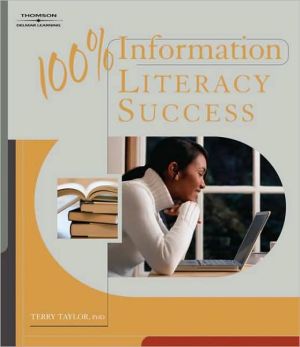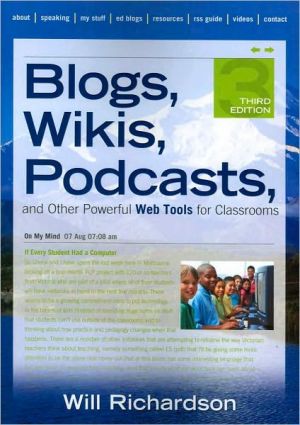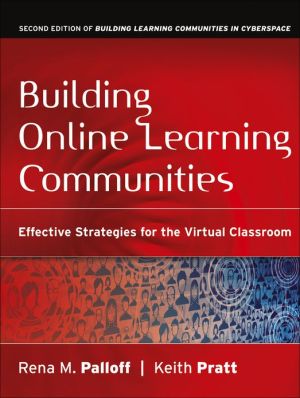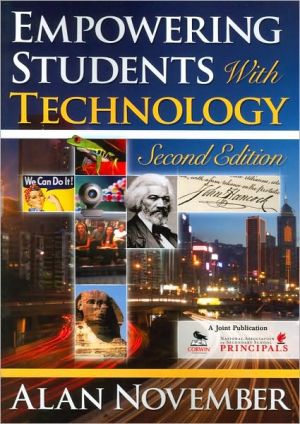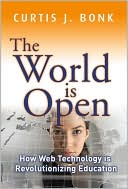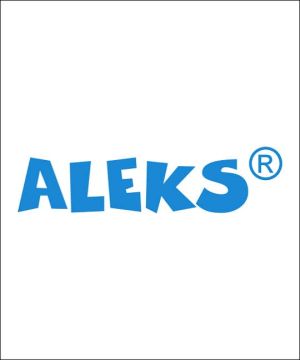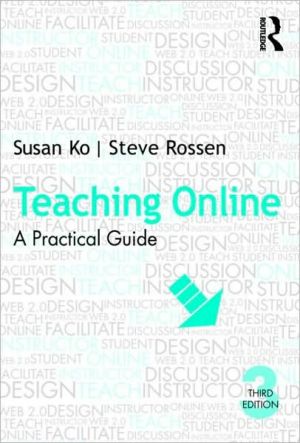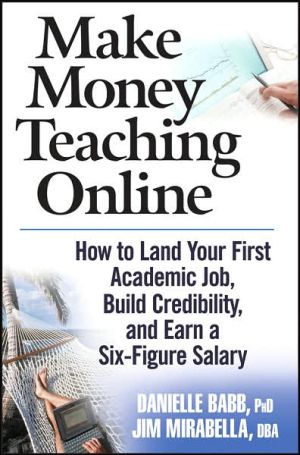100% Information Literacy Success
100% Information Literacy Success is the fourth text in the 100% Success series, and serves as a guide to the information literacy standards as described by the American Library Association. This text instructs students and professionals on developing crucial information skills to succeed in today's academic and professional environments. 100% Information Literacy Success is designed for use as both a comprehensive textbook as well as an easily accessible reference supporting readers beyond...
Search in google:
100% Information Literacy Success is the fourth text in the 100% Success series, and serves as a guide to the information literacy standards as described by the American Library Association. This text instructs students and professionals on developing crucial information skills to succeed in today's academic and professional environments. 100% Information Literacy Success is designed for use as both a comprehensive textbook as well as an easily accessible reference supporting readers beyond the classroom. Using hands-on learning activities and real-world applications, the text teaches readers how to determine the nature and extent of information needed to solve a problem, how to access the information effectively, how to evaluate the information found, how to use the information for a specific purpose, and how to effectively and legally communicate the information. Features of the text include critical thinking exercises, reflection questions, hints, and step-by-step research guidance- all of which help students understand and apply crucial skills while becoming comfortable with independent research and effective presentation methods. The 100% Information Literacy Success text is accompanied by an online companion, which contains student practice exercises, web resources, and tips for developing effective written documents and presentations. Instructor resources include lesson plans, quizzes, and power point presentations for each chapter. Mary Todd Chesnut - Library Journal This textbook, the fourth entry in the "100% Success" series, introduces students to the foundational concepts of information literacy as described by the American Library Association, empowers students to become information-literate, and prepares them for information-seeking in the workplace. The six chapters offer a step-by-step guide to defining an information need; finding, accessing, and evaluating information; and navigating through the legal, ethical, and communication dynamics of information-seeking. To facilitate the learning process, each chapter features learning objectives, a practical scenario, reflection questions, critical thinking questions, individual and group activities, self-assessment, and references. The periodic "hints" and "questions to ask" boxes encourage critical thinking. Many of the scenarios, questions, and activities involve workplace situations germane to the student's field of study, emphasizing the importance of information literacy for lifelong learning. The online companion features quizzes and web resources to complement each chapter. Well organized, easy to read, and comprehensive, this practical guide is highly recommended for those teaching college-level information literacy.
Chapter 1 Chapter Title: Introduction to Information Literacy Workplace Requirements of Employees Information Literacy: An Overview Why is Information Literacy Important? Steps in Effective Research Chapter 2 Chapter Title: Determining the Information You Need The Research Process The Main Research Question Focused Research Questions Primary and Secondary Information Library Information Sources Books Reference Sources Periodicals Multimedia Information Retrieval Systems Online Public Access Catalog (OPAC) Databases The Internet Chapter 3 Chapter Title: How Do You Find and Access Information? Library Organization The Library of Congress Classification System The Dewey Decimal Classification System The Superintendent of Documents Classification System Using Library Classification Systems The Call Number The Library Stacks Searching for Information Author Search Title Search Subject Search Keyword Search Boolean Operators Indexes Databases Information Collection Skimming and Scanning Highlighting Note-taking Photocopying Chapter 4 Chapter Title: How Do You Evaluate Information? Introduction Evaluating the Resource Publication Timeline Journals and Magazines Evaluating Authority Author Publisher Sponsor or Owner The Web Address Evaluating Currency Date and Edition of a Publication Determining Currency of a Website Website Stability Evaluating the Content Intended Audience Purpose and Scope Objectivity Accuracy and Verifiability Overall Quality Evaluating Multimedia Chapter 5 Chapter Title: OrganizingInformation The Importance of Effective Information Organization Organization by Category or Concept Chronological Organization Hierarchical Organization Presenting Information Effectively Organizing Written Documents Preparing Written Documents Organizing Graphics Types of Graphics Organizing PowerPoint Presentations Organizing Web Pages Application and Uses of Organized Information Proposals and Grants Technical Reports Chapter: 6 Chapter Title: Legal and Ethical Issues Related to Information Intellectual Property Copyright Plagiarism Citing Information Sources APA Style MLA Style Chicago Style Information and Privacy Issues Information and Security Issues Communicating Information The Communication Process Channels of Communication
